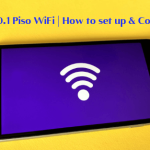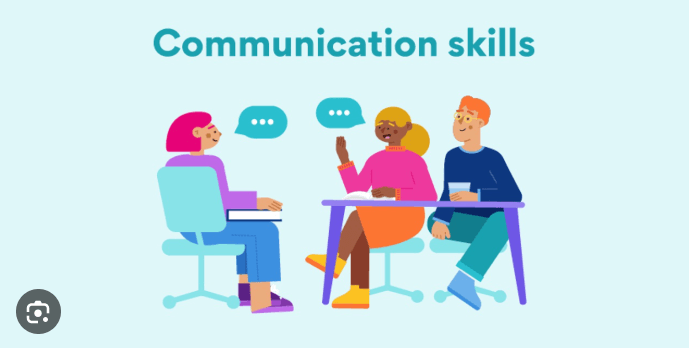Table of Contents
In the workplace – as in life – communication skills are a prized commodity and how well we perform in this area will make a huge difference to our lives..
That’s why it’s so important to assess where your communication skills really stand. The very simplest way is to take a communication skills test. There are many options out there, and for the sake of a five-minute online exercise, you;ll get valuable insights into your strengths and your areas for improvement. These tests are designed to highlight the way you interact with others, helping you identify hidden gaps that may be holding you back.
You’ll find this useful whether you want to improve your relationships, develop teamwork, or simply be more persuasive. That’s because understanding your communication style is the first step towards big improvements. And with the feedback you’ll get, you can work on becoming a more confident and effective communicator, which is what you want, after all!
With that said, let’s now look at 11 things you probably didn’t know about communication skills that could help you improve how you connect with others.
1. Listen Up
While you may already know that listening is a key communication skill, you may not be aware that there are actually seven different types of listening! To summarize, these are:
- Informational listening – Listening in order to learn something or gather information; for example during work training.
- Discriminative listening – This type of listening is about picking up on verbal cues such as tone and body language; even if you don’t understand the actual words being spoken.
- Biased listening – Commonly known as selective listening or hearing, this occurs when we only listen for specific pieces of information; often leading to a distortion of the facts.
- Sympathetic listening – This is a type of supportive listening in which you allow another person to vent whilst validating their feelings.
- Comprehensive listening – This term refers to the act of fully focusing on what is being said in order to absorb and understand the message that is being imparted.
- Empathetic listening – WIth this kind of listening we actively try to understand another person’s point of view; even if it opposes our own.
- Critical listening – This is an analytical form of listening usually brought into play when we need to process complex information.
Many people will instinctively know which type of listening is appropriate for a particular situation but this can also be learned through communication training.
2. Turn Down the Volume
When attempting to communicate with multiple people, many folks assume that they should speak loudly or even stridently however the opposite is actually true. Expert public speakers will tell you that when we speak quietly, our audience will listen harder and will therefore be less prone to distractions.
3. Actions Speak Louder Than Words

We’ve spoken briefly about discriminative listening which describes communication which is non-verbal and this includes body language. In fact, a staggering 93% of effective communication is non-verbal and so being aware of your gestures, facial expressions and tone is incredibly important for great communication.
4. What’s In a Word?
While non-verbal communication plays a significant part in our working lives, so too do the things that we actually say. Studies show that using the phrase “I think” can be termed as weak or indecisive in the workplace and should generally be replaced with “I believe” or “I know”. Similarly, using the word “might” tends to show a lack of clarity.
When it comes to our personal relationships, the words we use also play an important role. For example; during a disagreement with a partner, the use of the term “you always…….” can often be incendiary, further fuelling the argument.
5. Ditch The Digital!
These days, lots of managers and senior employees choose to communicate with their team by digital methods such as email or Slack; however, this can be neither effective or welcome. Many employees say that they would prefer that their manager communicate with them face to face as it helps them to better process information and understand what’s expected of them.
6. The Price of Poor Communication Skills
It goes without saying that bad communication skills aren’t great for business but how bad can this really be ? The answer is “very” – poor communication skills can have serious consequences including wasted time, missed messages and an inadequate customer experience.
7. Work Besties

For many people, having a “best work friend” is simply something that makes the working day more fun – but it can also help improve communication skills. A Gallup survey has revealed that employees who have a best work friend tend to be seven times more engaged and will usually communicate more effectively. While this may be good news, it’s important to understand that the language used with friends in your personal life is usually different to that which is appropriate at work. So take care…
8. Your Communication Health Check
It’s a few years ago now, but the Covid 19 pandemic brought with it some significant changes to how we interact with people from day to day. While some of these changes were unwelcome, the UK’s NHS reported “an enhanced recognition of communications as a strategic and vital professional function”.
9. Talking Up Employee Effectiveness
With many businesses on increasingly tight budgets, productivity is key. Studies show that employees who are kept informed through effective communication have a staggering 77% higher level of productivity.
10. A Passion for Productivity
When we think about communication in the workplace, the assumption is that emotions are a bad thing. While it’s not, of course, wise to go to extremes, emotional awareness can in fact improve communication. Allowing a little emotion into your work communications can emphasise your passion – which will often increase engagement in others.
11. Calling Communication Into Question
Communication is about imparting information – and this is a two way street. As well as effectively providing information, asking thoughtful questions will help to promote engagement in both your personal and professional life.
Investing In Your Communication Skills
Since time began communication has been essential for our survival and although the way we impart information changes, the basic premise doesn’t. Effective communication is a vital skill and one which is very much worth investing in! Whether you think about your family, social or employment, it will affect your life. And people who acknowledge they’re poor communicators and just shrug it off – “Well, that’s just me” – are doing themselve (and those around them, for that matter) a grave disservice.
So think about it. Whether it’s following what we say here, or taking a test, or even attending a course, you’ll find that your investment in the time and minimal cost it takes will pay off hunderds of times over in the ways your life improves.















